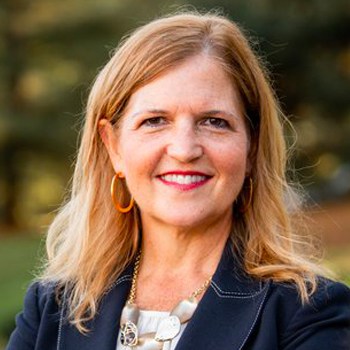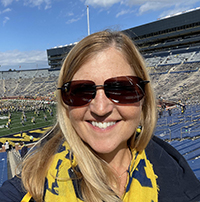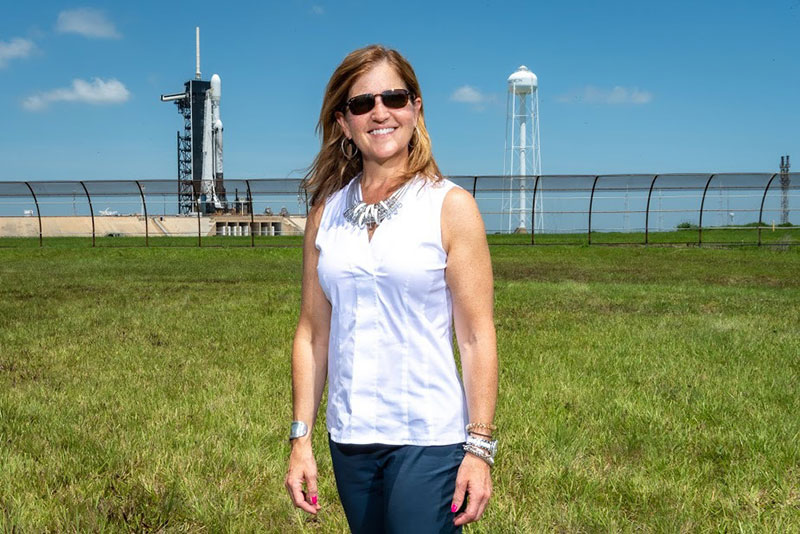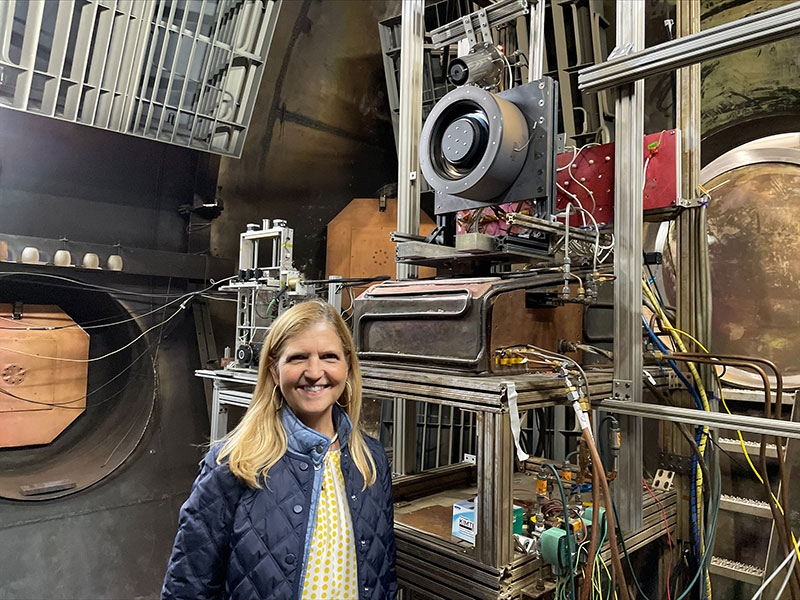
Debra Facktor wants you to go to football games and always be learning
Aero alumna leading Airbus U.S. space systems shares her experience and advice

Aero alumna leading Airbus U.S. space systems shares her experience and advice
Michigan Aerospace caught up with alumna and Industry Advisory Board member Debra Facktor recently to learn more about her career, her experience at U-M, and her advice for students.

Debra Facktor is the Head of U.S. Space Systems for Airbus U.S. Space & Defense, Inc. She focuses her work on National Security Space and Space Exploration and serves on the board of Airbus OneWeb Satellites, a joint venture of Airbus and OneWeb in Florida that manufactures small satellites for OneWeb’s commercial satellite constellation and for Airbus commercial and government customers. . Before that, she was the Vice President and General Manager of Strategic Operations for Ball Aerospace, where she oversaw strategic development as well as marketing and communications. But before all of this, Facktor was a student at U-M.
A third generation Wolverine born in Ann Arbor and raised in the Detroit area, Facktor grew up thinking she would attend the University of Michigan. She never doubted where she wanted to go to school, but what she would study on campus was another matter. At a career day in Detroit hosted by the Society of Women Engineers (SWE), she heard a woman talk about seeing a car she designed driving down the road. Although Facktor wasn’t particularly excited about cars, this put engineering on the map for her.
With engineering on her mind, NASA sealed the deal when it launched the first space shuttle in 1981. This is it, she thought. Aerospace. I want to do things that haven’t been done before. This principle is what guided her entire career, and to this day Facktor remains true to it.

Going to U-M shaped Facktor’s career in multiple ways. She created a tight-knit community that still remains strong today. She comments, “Going to U-M and gaining the academic and social experiences are like a connective tissue. It’s still real today – with all alumni. I consider U-M and the Aerospace department like family. Our community is super strong.”
On campus Facktor was the president of SWE. She joined AIAA as a freshman and today she’s a Fellow, alongside many other aerospace faculty, and is active on the Honors and Awards Committee. She was in a sorority and was a class officer in SGT, extracurriculars that one may think are decorative but to her are essential. By participating in them, Facktor learned how to build and organize teams and, most importantly, how to lead them.
“When hiring people, look for the extracurriculars,” Facktor said. “Engineers can be labeled introverted, but they all have something going on that shows their passion and determination. What started on campus for me still exists today. I’m involved in a lot of groups that either match my values or are focused on aerospace and supporting women in a variety of Aerospace capacities.”

Eventually, Facktor became an expert in rocket engines and launch vehicles (which is ironic given her initial disinterest in cars) and then worked in early start-ups Kistler Aerospace Corp and AirLaunch LLC that influenced the landscape of the commercial launch industry. When joining Ball Aerospace, she shifted to satellites, and today she runs the space business unit at Airbus U.S. Space & Defense. A lot of her work is focused on small satellites, with a manufacturing plant in Florida (just outside the NASA Kennedy Space Center) and a team based in Houston flying payloads on the International Space Station (ISS).
After over 30 years in the aerospace industry, Facktor reflects upon what made her truly love her job, and for her there are two essential things: being part of a great team with a great cultural environment and doing truly important work. Today, Facktor’s team is part of the U.S. national defense space architecture by providing satellites for space constellations – a truly challenging and rewarding feat.
Looking back at her time at the University of MIchigan, Facktor shared a few words of wisdom for current students:

“Make the most of your experience. Be engaged, get involved, go to football games. Feel the Michigan spirit and the community of aerospace. Ask for help when you need it: you are not alone. Friends, faculty, everyone is willing to help… Always be open minded to creativity. Aerospace is inherently risky, so have curiosity… and actively seek out different views. The power is in collaboration, community, sharing, diversity. Always be learning– be a learner, not a knower.”